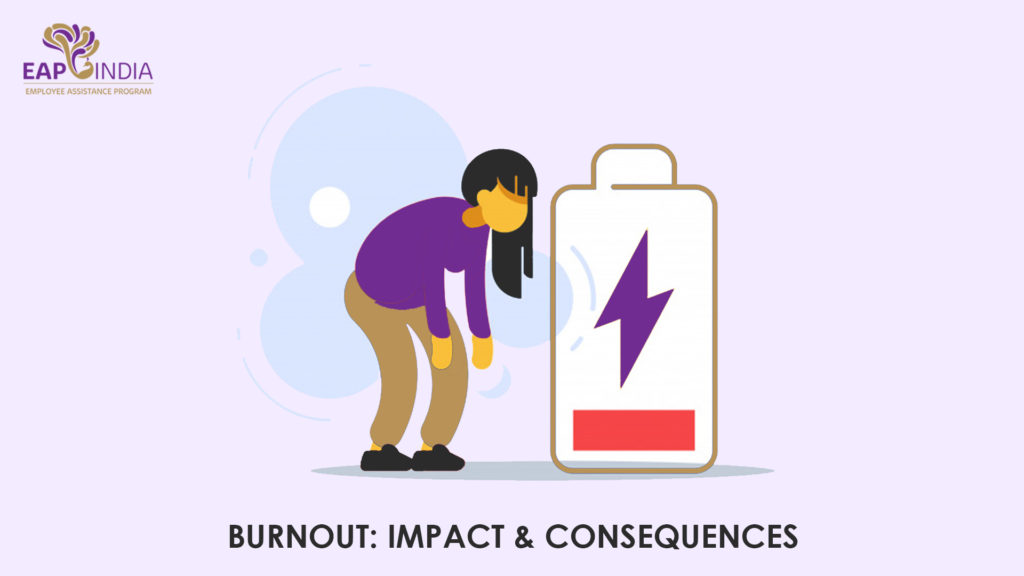Burnout is a condition that results from long-lasting stress at work, with several consequences to workers’ health and well-being. Working conditions have, either positive or negative impact, on employees’ health. Hostile working conditions may lead to job burnout, a condition resulting from long-lasting stress at work that is characterized by overwhelming exhaustion, negative attitudes or a lack of commitment with clients and dissatisfaction with job performance.
In short, it is emotional and physical exhaustion that leads to job dissatisfaction and loss of personal happiness.
Burnout at workplace almost does not get noticed. It usually creeps in subtly, over time, and influences workers.
Signs and symptoms include chronic fatigue, insomnia, physical symptoms like headaches and stomach aches, anger, isolation, irritability, depression, and more studies have shown associations between burnout and some health problems, such as increased alcohol consumption, sleep disorders, depression, sedentarism, obesity and musculoskeletal pain.
Impact of Burnout:
Burnout in general and in workplace is a difficult and impactful reality. People dealing with workplace burnout symptoms and job stress are often impacted in many ways. They can lead to many negative consequences in almost all areas of one’s life.
Studies have shown that in general the most common physical impact one experiences is in the form of cardiovascular disease (Coronary Heart Disease) and the most common psychological impact experienced by individuals were the symptoms of Insomnia and depression.
Physical Consequences:
- Fatigue
- Increased likelihood for Coronary Heart Disease
- Increased likelihood for type 2 diabetes (tends to be risk factor for Coronary Heart Disease)
- Increased likelihood for respiratory issues (tends to be risk factor for Coronary Heart Disease)
- Increased likelihood for high blood pressure
Personal Consequences:
- Loss of motivation
- Isolation from friends and family
- Alcohol or substance abuse (Due to isolation and a lack of motivation after burnout)
- Irresponsibility with finances (Due to lack of motivation after burnout
- Anger towards family members (Due to continuous feeling of lack of control)
Professional Consequences:
- Job dissatisfaction
- Withdrawing from colleagues and friends
- Drop in performance at work
The impact of job stress should not be taken lightly. As we see there are many things that get impacted in one’s life.
Mental Health Issues:
- Increased likelihood for mental health needs like medication or hospitalization
- Depression
- Insomnia
- Anger
- Irritability
- Anxiety
Recent Researches:
Causes of burnout could be due to a number of reasons. Some of them are- Poor work culture, Lack of work life balance, working too much and lack of control.
According to the foremost expert on burnout, Christina Maslach, social psychologist and professor emerita of psychology at the University of California it is not the individual that is the problem but the organisation who fails to play the role of a great leader.
A survey of 7,500 full-time employees by Gallup found the top five reasons for burnout are:
- Unfair treatment at work
- Unmanageable workload
- Lack of role clarity
- Lack of communication and support from their manager
- Unreasonable time pressure
The list validates that the root causes of burnout do not really lie with the individual and that they can be prevented, if only management and leadership started their prevention plans.
Interventions need to be implemented to reduce job stress in the workplace. Managers and administrators can provide workers with resources at the workplace and help prevent emotional depletion.




